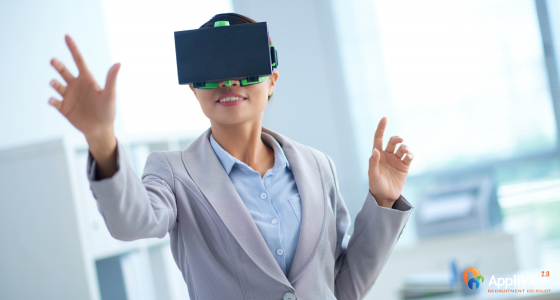Artificial Intelligence is revolutionizing the hiring landscape by addressing unconscious biases that hinder workplace diversity and inclusion. Traditional recruitment often relies on subjective human judgments influenced by non-performance-related factors such as gender or ethnicity. AI, with its objective and data-driven approach, is reshaping recruitment practices.
AI: Champion of Bias-free Recruitment

In recent years, Artificial Intelligence has emerged as a formidable ally in transforming the recruitment process. At the heart of this transformation is the ability of AI to minimize unconscious bias, a deeply ingrained obstacle that has long hindered diversity and inclusion within workplaces. Traditionally, human recruiters have offered subjective interpretations of candidates’ qualifications, often swayed by factors unrelated to job performance, such as gender, ethnicity, age, or educational background. AI, however, offers a solution that champions objectivity, fairness, and equality, focusing solely on pertinent criteria such as qualifications and experience.

AI-driven recruitment tools employ sophisticated algorithms to analyze vast amounts of data, thereby providing a balanced and comprehensive evaluation of job candidates. These algorithms can screen resumes, assess qualifications, and even conduct preliminary interviews without the influence of human biases. For instance, AI can anonymize candidate data, removing names, addresses, and other identifiers that could trigger bias, ensuring that decisions are based purely on the skills and experience pertinent to the job role. By leveraging these capabilities, organizations can expand their candidate pools to include individuals who might have been overlooked due to unconscious biases, thus fostering a more diverse and inclusive hiring process.

Another significant advantage of AI in recruitment is its ability to continuously learn and adapt. With every hiring cycle, AI systems gather new data, refining their algorithms to improve both precision and fairness in evaluations. This dynamic learning capability means that as biases are identified and filtered out, recruitment processes become increasingly equitable over time. AI’s adaptability also allows it to respond to evolving hiring landscapes, ensuring that companies remain competitive by attracting diverse talent in an ever-changing job market.
Conclusion
The integration of AI into the recruitment landscape stands as a pivotal step towards creating fairer, more inclusive workplaces. By minimizing unconscious biases and focusing on objective evaluation, AI ensures that the hiring process is equitable and just. As companies continue to embrace AI-driven recruitment tools, they pave the way for greater diversity, harnessing the myriad benefits that different perspectives and ideas bring. Ultimately, AI doesn’t just streamline hiring but reshapes the organizational ethos towards one committed to equity and inclusion, aligning business practices with the values of modern society.
